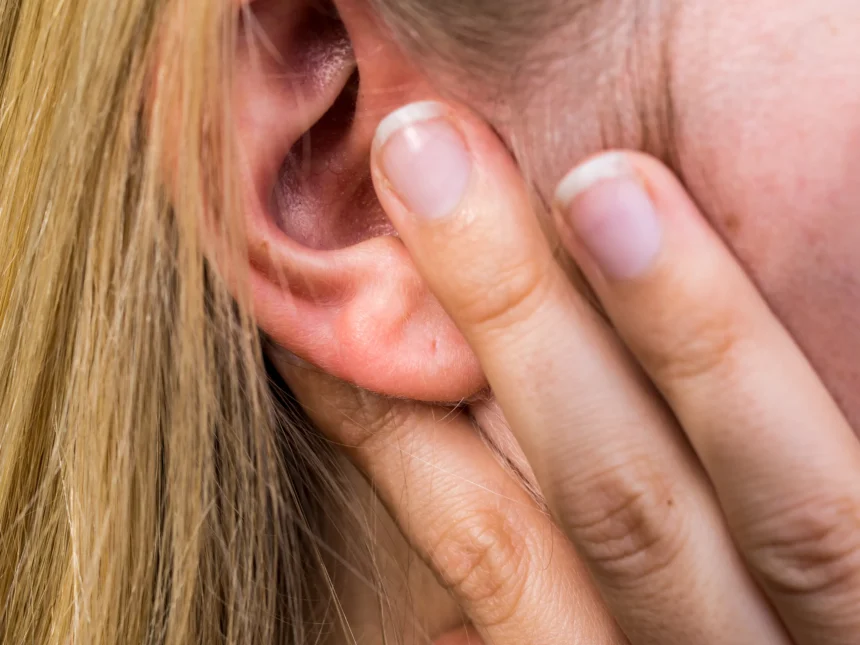You Shouldn’t Feel Like This Every Day
If you’re always feeling pressure in your ears, and you’re constantly clearing your throat, you’re not alone. These problems are more common than most people think. While they might seem like small annoyances, they could point to a bigger issue: ENT-related allergies.
Many people mistake ear pressure and postnasal drip for colds or sinus infections. But if the symptoms keep coming back or never fully go away, the real cause might be allergies—and not the kind you can ignore.
How Allergies Cause Ear Pressure and Postnasal Drip
Allergic Rhinitis and the ENT System
Allergic rhinitis (often called hay fever) happens when your immune system overreacts to things like pollen, dust mites, pet dander, or mold. Your body sees these allergens as threats and releases chemicals like histamine to fight them off.
This reaction causes swelling in your:
- Nasal passages
- Sinus cavities
- Eustachian tubes (which connect your ears to your throat)
All of this swelling creates a chain reaction—resulting in ear pressure, fluid buildup, and mucus drainage.
How Mucus Builds Up and Causes Postnasal Drip
Your body makes mucus all the time to keep your nose and throat moist. But allergies can trigger excess mucus. When this happens, it doesn’t always come out the front of your nose. Instead, it drains down the back of your throat—a process called postnasal drip.
This can cause:
- Throat clearing
- Coughing, especially at night
- Sore throat
- Bad breath
If it feels like your throat is coated or your voice is always scratchy, this may be the reason.
Swollen Eustachian Tubes and Ear Pressure
Your Eustachian tubes help equalize pressure between your inner ear and the outside world. But when these tubes get blocked by allergy-related inflammation, you feel fullness, pressure, or even temporary hearing loss.
Sometimes, fluid gets trapped in the ear, making it feel like you’re underwater—even though you’re not.
Signs You’re Dealing With Allergies, Not a Cold
It Lasts Longer Than 10 Days
Colds usually go away in a week or so. But allergy symptoms can last weeks or months, especially during certain seasons.
There’s No Fever
Unlike colds or infections, allergies don’t cause fever. If you feel fine except for congestion, ear fullness, or throat drainage, allergies are a likely cause.
Symptoms Come and Go With the Weather or Environment
If your symptoms get worse during spring or fall, when pollen is high—or after dusting your home—they’re probably allergy-related.
When to See an ENT Allergy Specialist
Your Symptoms Keep Coming Back
If you’re treating the same symptoms over and over with over-the-counter meds, it’s time to get a real answer. An ENT allergy specialist can help figure out what’s causing the problem—and how to stop it for good.
You Have Frequent Sinus or Ear Infections
Recurring sinus infections, ear infections, or fluid buildup are red flags. Allergies might be to blame, especially if antibiotics only give short-term relief.
You’re Not Sleeping Well
Postnasal drip often gets worse when you lie down, which can cause coughing, snoring, and poor sleep. If allergies are behind your symptoms, treating them may help you sleep better and feel more rested.
How ENT Specialists Diagnose Allergy-Related Issues
Allergy Testing
Doctors may recommend skin prick tests or blood tests to check for allergies. These tests show how your body reacts to different common allergens like pollen, mold, or dust.
Nasal Endoscopy
ENT doctors sometimes use a thin, flexible camera to look inside your nose and throat. This helps them see inflammation, mucus buildup, or other problems.
Imaging If Needed
If symptoms are severe, your doctor may order a CT scan of your sinuses or ears to rule out other causes and check for blockages.
ENT Allergy Treatments That Work
Medications to Control Symptoms
ENT specialists often start with:
- Antihistamines to block allergy responses
- Nasal steroid sprays to reduce inflammation
- Decongestants for short-term relief
These can ease your symptoms and improve how your body responds to allergens.
Nasal Irrigation
Saline rinses or neti pots help flush out allergens, mucus, and irritants from your nasal passages. This reduces postnasal drip and pressure naturally.
Allergy Immunotherapy (Shots or Drops)
If your allergies are severe or long-term, your doctor might recommend allergy shots or sublingual drops. These treatments help your body build tolerance over time, so it reacts less strongly to triggers.
Surgery for Chronic Issues
If medications and allergy treatments don’t work, and symptoms keep coming back, surgery may be an option. ENT surgeons can correct issues like deviated septums, nasal polyps, or chronic sinus blockages to improve airflow and drainage.
How to Manage ENT Allergies at Home
Keep Your Home Clean and Allergen-Free
- Use HEPA filters in your HVAC system
- Wash bedding in hot water weekly
- Keep pets out of the bedroom
- Vacuum carpets often
These steps reduce exposure to indoor allergens like dust mites and dander.
Monitor the Weather and Pollen Counts
Stay indoors on high-pollen days. Close windows and use air conditioning instead of fans that bring pollen indoors.
Rinse Your Nose Daily
Using a saline spray or nasal rinse bottle once or twice a day can reduce mucus, improve breathing, and wash away allergens.
Conclusion: Don’t Ignore What Your Body Is Telling You
If you’re tired of feeling ear pressure and dealing with postnasal drip every day, you’re not alone—and you’re not stuck. These symptoms are often linked to ENT allergies, and they can be managed with the right care.
From simple medications to long-term allergy treatments, ENT specialists offer real solutions that go beyond temporary relief. If your symptoms keep coming back, it’s time to stop guessing and get answers.
You deserve to breathe clearly, sleep better, and live without that constant tickle in your throat or fullness in your ears. The fix could be easier than you think.







